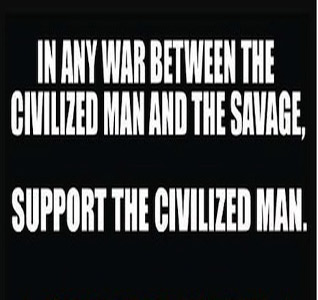Travel
Right & Wrong
T. SHER SINGH
DAILY FIX
Tuesday, September 25, 2012
As a westerner traveling through South-East Asia - hopping from one country to another - it doesn’t take long to recognize that one is in a different universe.
The points of reference are different; the rules are different; values are different; priorities are different.
And, standing in such a universe which is so distinctly different from ours -- and by “ours”, I mean, at one level, the Eurocentric nations and cultures, which include North and South America -- one need only look back at what we’ve left behind to put it in its proper context.
It is easy, for example, while standing in North America, to accept the “wrongness” of things from other lands, and the “superiority” of our ideas, views and directions.
But, once you have immersed into another society which is complete in itself, which stands independently, and look back at North America, you realize very quickly that the norm has shifted. The values and beliefs of where you now stand start taking on the air of normalcy, the things you have left behind suddenly start to look odd and askewed.
Before you know what is happening, everything North American or European begins to take on the air of “wrongness” and abnormaility.
The trick, of course, is in pinching yourself and reminding yourself over and over again: the lesson to be gained from it all is that there is no “right” and no “wrong” in terms of “their” value system and “ours”, there is only the fact that there are many value systems, all of which are rich and meaningful, if understood fully.
Religion is one area which is obviously ideal for such an exercise.
I remember visiting the temples of Hong Kong and being fascinated by the local practices.
One stood out in particular: of directing and dedicating one’s piety to the memory of one’s ancestors.
One such ritual involves building or buying replicas of material things and burning them ceremoniously with the idea that they are being transferred to the ancestors, for their use and benefit in the ’hereafter’.
Thus, you can buy a replica of a 3-storied mansion, made of paper and wood, as big as a 2 ft cube. You can get ones that are smaller or far bigger. You burn them as part of the religious ceremony, and the buildings get transported as real mansions to the distant heavens.
Thus, you can also send automobiles, servants, foods and delicacies, even cash, in this manner.
This is done either at the funeral, or later, during annual commemorations.
I enjoyed all of this, particularly since I was able to visit a funeral home and a store where you can buy virtually everything in replica form, and observe the practice at close quarters. They even had computers and fridges.
It was the cuteness of the idea and the intensity of the local belief in it that intrigued me. My arrogance, fed by a liberal dose of skepticism and condescension, remained alive, though well hidden. It did not interfere with my enjoyment.
It never does. We have learnt to humour those who are different from us, as long as they entertain us.
It wasn’t until much later, while I sat on the ferry heading back to Hong Kong island, that it hit me, that this practice was no different from what most North-Americans think is the norm.
After all, millions on the continent where I live -- yes, North America! -- believe that a man who lived two thousand years ago died in order to help wash away the sins of his followers, past, present and future. Believers bolster their belief by capitalizing the man into “Man”, “he” and “him” into “He” and “Him”. Some say it was because he is God -- with a capital “G” -- therefore, there is no need to ask any more questions. They further reinforce their belief by declaring that he was born of a virgin, and that he came alive and physically rose to the heavens several days after he was killed.
Other people with similar beliefs about their own revered persons and deities have their own versions.
The Hindus, for example, believe that the water of the River Ganges they throw with their cupped hands, at sunrise towards the sun, helps irrigate the fields of their ancestors in paradise.
There are the soft-headed amongst Sikhs who have now begun to believe that if you pay a bunch of people sitting thousands of miles away to read the scripture non-stop from beginning to end, it’ll win you personal credit with God, to be cashed in at will.
How is all of this any different, either in quality or quantity, from the Chinese belief that you can add to the comfort of those who have lived in the past by invoking prayer and sending replicas of gifts?
The Chinese have a string of gods and goddesses. Are they any different from the string of saints in the Christian universe? Why does calling one a “saint” give it normalcy, calling one “god” or “goddess” (with a small “g”) make it abnormal and a figment of superstition?
This is not unlike what our history books do: Christians go on “crusades”; but Muslims go on “holy wars”.
It is also not unlike what our media pundits do: if Christians murder other Christians over a religious dispute, the murderer is called “pro-life”, the victim is called “pro-choice”.
If a Sikh kills another Sikh over a religious issues, the whole community is labelled “violence-prone”, or deemed riddled with “terrorists”, and divided into two camps: moderates and fundamentalist.
If all Sikhs are either moderate or fundamentalist, does that mean all Christians too are either fundamentalists or moderate?
Is the Pope, then, a fundamentalist or is he a moderate?
This week a well-orchestrated advertisement campaign funded by American Jews will litter New York’s subways and bill-boards with the following message:
“IN ANY WAR BETWEEN THE CIVILIZED MAN AND THE SAVAGE, SUPPORT THE CIVILIZED MAN."
I am not sure who is the civilized man, who the savage.
The men who brutalize and murder a whole population of Palestinians, or those who fight back against their Israeli tormentors and occupiers of their land by equally brutal tactics such as suicide bombs?
Who is right? Who is wrong? The ones with more money and leverage, or the ones who are weak and oppressed and voiceless?
It’s all a question of where one stands looking upon the scene, doesn‘t it?
Conversation about this article
1: Yuktanand Singh (USA), September 25, 2012, 12:28 PM.
Sometimes both sides are wrong, but for different reasons. The most uncivilized are those who are unable to empathize with the opposite side. The problem today is not our varied beliefs but sharing the land and the resources. This is difficult. Religion is used as the most effective tool to incite the mob. Learning to live together and allowing others to retain their differences as long as they want (as long as this is not a threat to others) is what life is all about, as far as I can tell.
2: Simran (Oceanside, California, U.S.A.), September 29, 2012, 3:18 PM.
Thank you for sharing. I enjoyed it. It reminded me of two cool gurbani references on a similar topic: "As the Lord attaches us, so we are attached. No one is foolish, and no one is wise. Nanak is a sacrifice to those who are blessed by His Grace to receive His Name" [GGS:913] "No one is foolish, and no one is clever. Your Will determines everything; You are Inaccessible, Incomprehensible, Infinite and Unfathomable. Your Value cannot be expressed" [GGS:98]. We are all the same ... to err is human.




